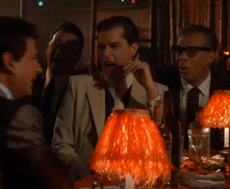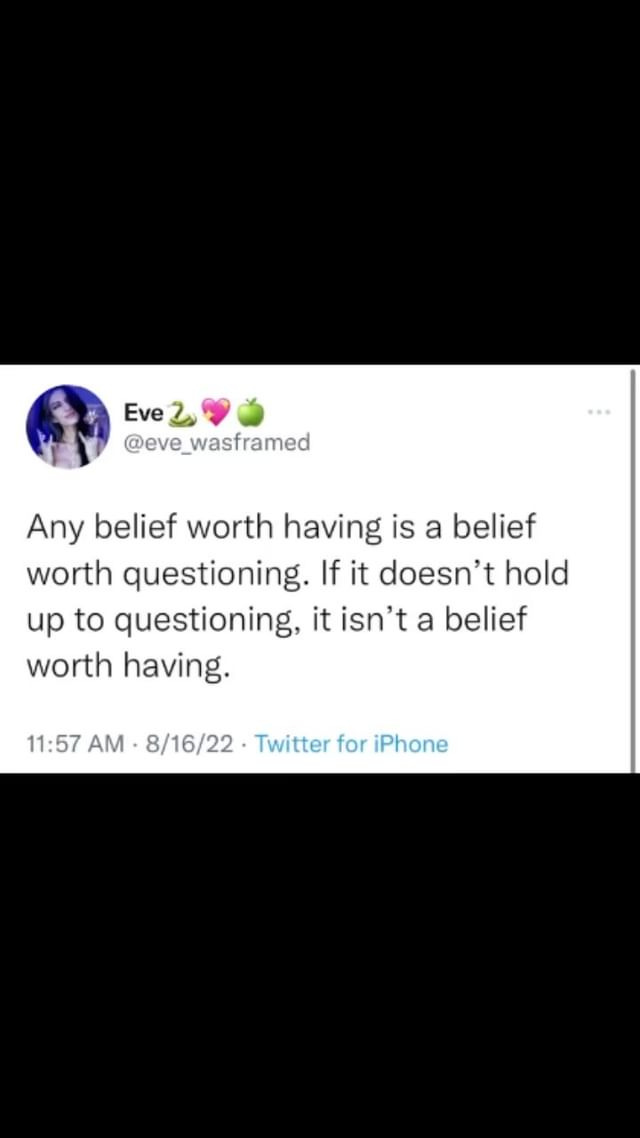Deconstruction
When I first left the cult, I felt a lot of internal pressure to figure out exactly what I believed and do it as fast as possible.
I thought I would read some books, sort my beliefs out, and find a new church. I’d check “new worldview” off my to-do list and move on.
Oh, sweet, summer child.
In fact, the founder of the cult I’d just left (The Way International or TWI) had felt a similar desperation early in his career. In The Way: Living in Love, Victor Wierwille said:
“I was praying. And I told Father outright that He could have the whole thing, unless there were real genuine answers that I wouldn’t ever have to back up on.”
That’s fundamentalist/cult thinking. Fundamentalist/cult thinking believes there is One Right Way, and if you don’t know it, you’re in danger. You’re also supposed to be saving the world, and how can you do that if you don’t know All The Answers?
(It’s also a cop out. Scholarship means looking at a variety of sources and using critical thinking and research methods to draw conclusions. That’s hard work. Scholarship and research also means getting it wrong sometimes. This is especially obvious in scientific research, but any academic discipline is the same. Sometimes archaeologists and paleontologists uncover new evidence that disproves earlier theories. But from this statement, it seems Wierwille didn’t want to deal with all this work or with getting it wrong.)
Eventually, I relaxed into the journey of deconstruction. I started with reading some progressive Christian authors, attended an Episcopal church for a couple years, explored Buddhism, and eventually realized I had become atheist.
Deconstruction is a process that is different for every person and each person’s outcome will be different. It’s possible to deconstruct and still be a Christian even though that’s not where my path led.
I hesitate to even say “where my path led” though. Despite my initial compulsion to figure out exactly what I believed, the most important part of my deconstruction has been finally allowing myself to say “I don’t know” and to ask any question without fear of where it might take me.
Instead of feeling threatened by questions and contradictions, they feel exciting, like spotting a side trail in the woods I’ve never explored before. I wonder where each one will take me, and I’m not afraid of finding out “I have to back up on” something I thought before. I hope I never stop noticing those unexplored paths.

Resources I’ve used along the way are listed below. Some of these I use currently, and some I haven’t accessed for years. This is not an endorsement of the content from any of these sources. If anything, I think this list is a good example of the wide variety of resources I’ve used over the years and how I’m continually learning and changing.
Instagrammers
@eve_wasframed: Videos about agnostic atheism.
@caleykukla: Parent educator who uses brain science and empathy.
@mrchazz: School teacher who offers thought-provoking content about interacting with children.
@happywholeway: Advice about deconstruction.
@maklelan: Doctor of theology and religion who makes videos to combat misinformation about the Bible.
Blogs and Forums
Love, Joy, Feminism: Helped me think through aspects of purity culture and patriarchy.
Gentle Christian Mothers: One of the first places I explored alternatives to spanking.
Podcasts
I Pray You Put This Journal Away: Former IBLP follower and former friend of Josh Duggar explores his journal from his teenage years.
Pitchfork Economics with Nick Hanauer: Political deconstruction followed my religious deconstruction, and this podcast has given me a lot to think about.
Secular Buddhism with Noah Rasheta: Thoughts on applying Buddhist principles to everyday life.
UCLA Mindful Awareness Research Center’s Drop-In Meditations: One of my favorite meditation resources.
Organizations
The Episcopal Church: This was a safe place for me to explore new Christian ideas after I left the cult.
La Leche League International: Another of the first places I learned about alternatives to spanking.
Attachment Parenting International: Also a resource for alternatives to spanking.
Books—Religion and Spirituality
Jesus Feminist: An Invitation to Revisit the Bible's View of Women by Sarah Bessey
Reading the Bible Again For the First Time: Taking the Bible Seriously But Not Literally by Marcus J. Borg
Zen for Christians: A Beginner's Guide by Kim Boykin
An Altar in the World: A Geography of Faith by Barbara Brown Taylor
The Power of Self-Compassion by Laurie J. Cameron
Godforsaken: Bad Things Happen. Is there a God who cares? Yes. Here's proof. by Dinesh D’Souza
Inspiration and Incarnation: Evangelicals and the Problem of the Old Testament by Peter Enns
Evolving in Monkey Town: How a Girl Who Knew All the Answers Learned to Ask the Questions by Rachel Held Evans
A Year of Biblical Womanhood by Rachel Held Evans
Without Buddha I Could Not be a Christian by Paul F. Knitter
Fully Present by Susan Smally and Diana Winston
The Lost World of Genesis One: Ancient Cosmology and the Origins Debate by John H. Walton
Scripture and the Authority of God: How to Read the Bible Today by N.T. Wright
Surprised by Hope: Rethinking Heaven, the Resurrection, and the Mission of the Church by N. T. Wright
Why Buddhism is True: The Science and Philosophy of Meditation and Enlightenment by Robert Wright
Books—Relationships and Family
Brain-Body Parenting: Using Insights from Neuroscience to Nurture Your Child's Resilience by Mona Delahooke
The Explosive Child by Ross Greene
Unconditional Parenting: Moving from Rewards and Punishments to Love and Reason by Alfie Kohn
Peaceful Parent, Happy Kids: How to Stop Yelling and Start Connecting by Laura Markham
Boundaries in Marriage by John Townsend and Henry Cloud
Boundaries: When To Say Yes, How to Say No to Take Control of Your Life by John Townsend and Henry Cloud
Families Where Grace Is in Place by Jeff VanVonderen
Books—History and Politics
Humankind: A Hopeful History by Rutger Bregman
Sapiens: A Brief History of Humankind by Yuval Noah Harari
Jesus and John Wayne: How White Evangelicals Corrupted a Faith and Fractured a Nation by Kristin Kobes Du Mez
The Nordic Theory of Everything: In Search of a Better Life by Anu Partanen
Just Mercy: A Story of Justice and Redemption by Bryan Stevenson
A People's History of the United States by Howard Zinn




